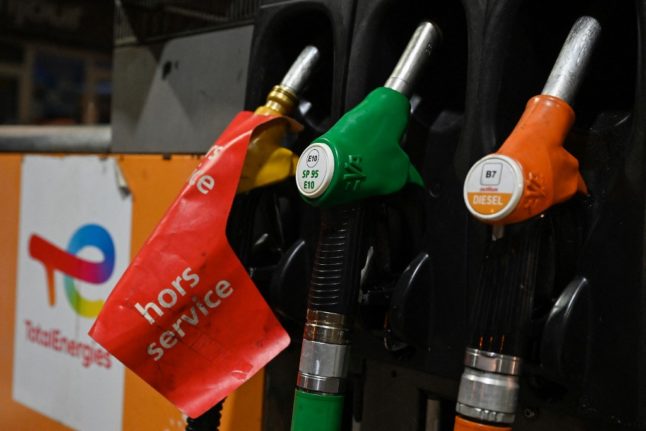Employees of Total Energies have been staging industrial action that includes blockades at refineries, in an ongoing dispute over pay, that has lead to shortages of petrol (gasoline) and diesel at Total filling stations across France.
On Friday around 15 percent of stations reported shortages while the worst affected areas – including the north-east France Hauts-de-France region – saw 30 percent of filling stations run dry.
The strike, called by the hardline CGT union, has been underway for 10 days and will continue until demands are met, CGT spokesman Thierry Defresne told Le Parisien newspaper.
The government has played down talk of a shortage, and on Friday it was announced that tanker drivers will be given a special dispensation to work on Sunday, in order to ease the supply issues.
Government spokesman Olivier Véran said during a press briefing that there is “no shortage of fuel.”
“There are temporary tensions,” said Véran. However, he advised that people “not create a panic effect” and “not all rush [to the stations]. We will not run out of fuel.”
The government spokesperson said that the situation is being closely monitored, and that strategic stocks may be called on if necessary as strike action continues.
Local authorities have also asked the operators of some stations in the north of the country “to set up priority access” for “medical transport” such as doctors and nurses, according to La Voix du Nord.
“Does anyone know of a petrol station around here that’s been re-supplied?” read a post in a local Facebook post Friday morning. “Where can I get ethanol?” posted another motorist in the hope of filling the tank before the weekend.
“We’ve been dry since Sunday,” a manager at a station in central Paris said on Thursday.
Customers can check to see if stations near them are low in stock by consulting the map on TotalEnergies’ website, HERE.
Total bosses say that the refinery workers’ strike is not the only reason for fuel shortages – the company began offering customers an additional discount on fuel prices at the beginning of September, which could be added on top of the government’s existing fuel subsidy.
On July 22nd, the TotalEnergies announced it would offer a discount of €0.20 per litre at all its service stations in the country from September 1st until November 1st. In the second phase, which would run from November until December 31, the discount will be €0.10 per litre.
As a result of the campaign, the oil giant has seen a 30 percent increase in the number of customers frequenting its stations, which has left many without the necessary stocks to meet high demand.
The company assured customers that there is “no shortage of fuel” and that it “has built up stocks and is importing regularly,” according to France régions.




 Please whitelist us to continue reading.
Please whitelist us to continue reading.
Member comments